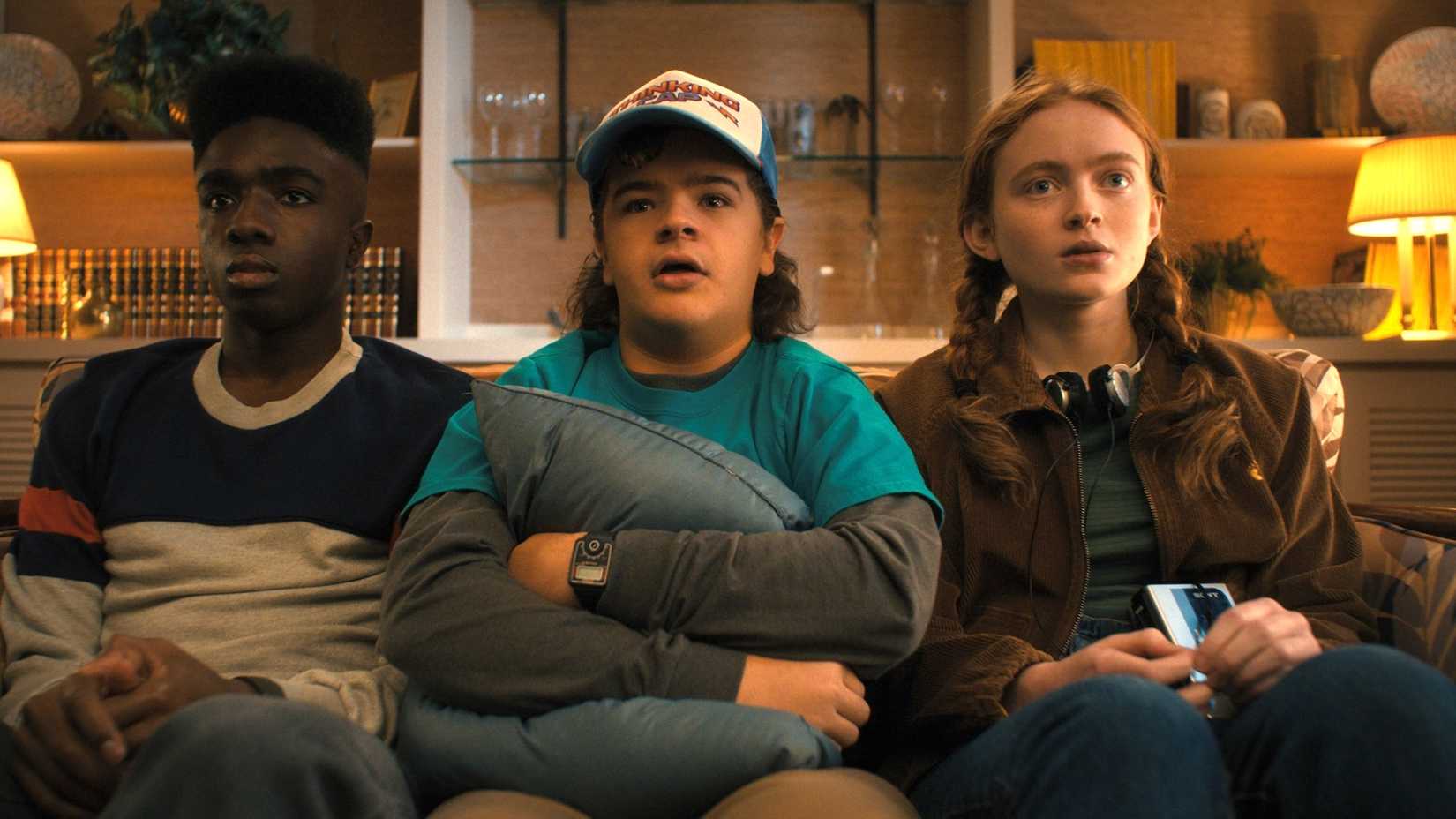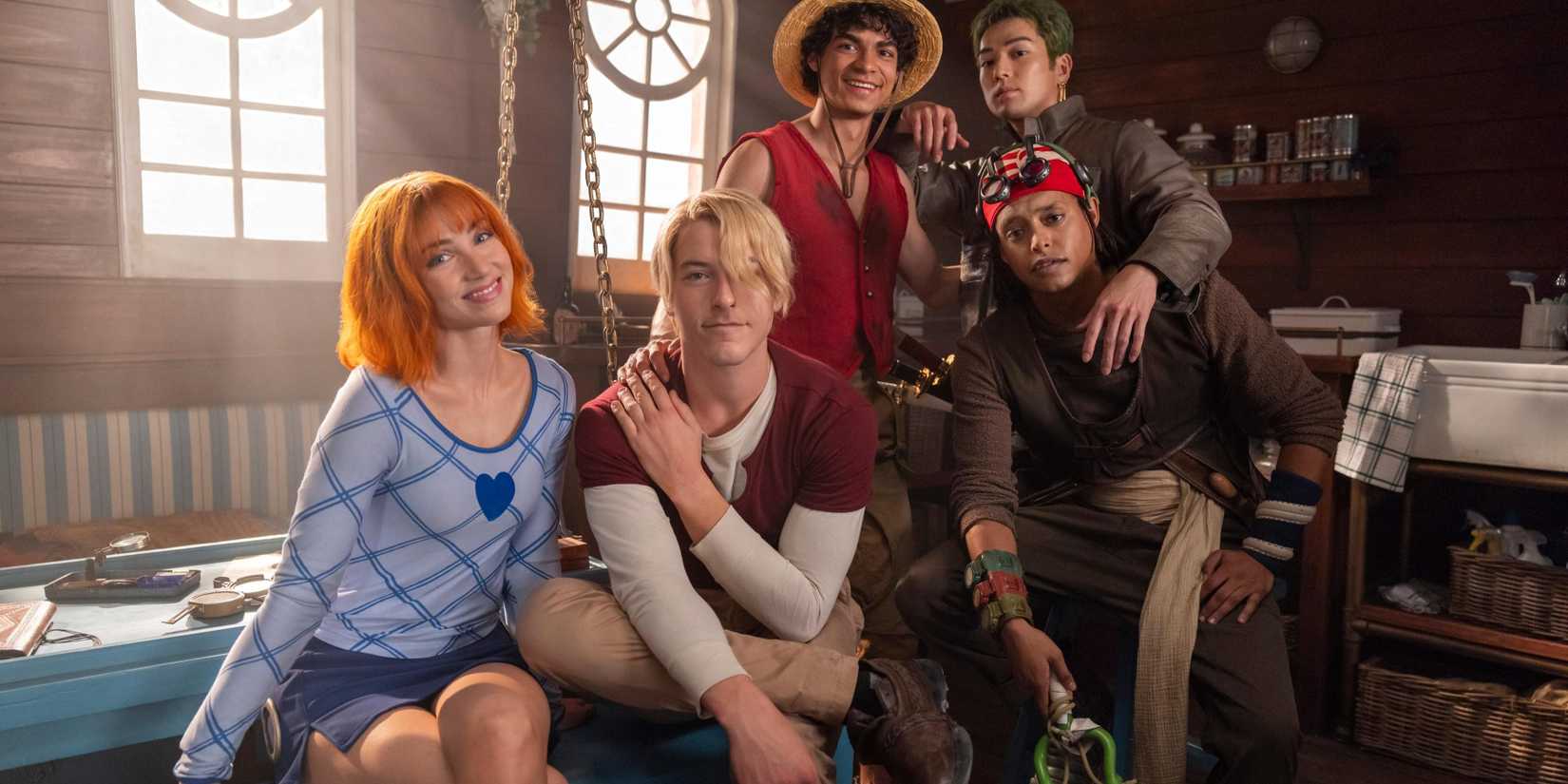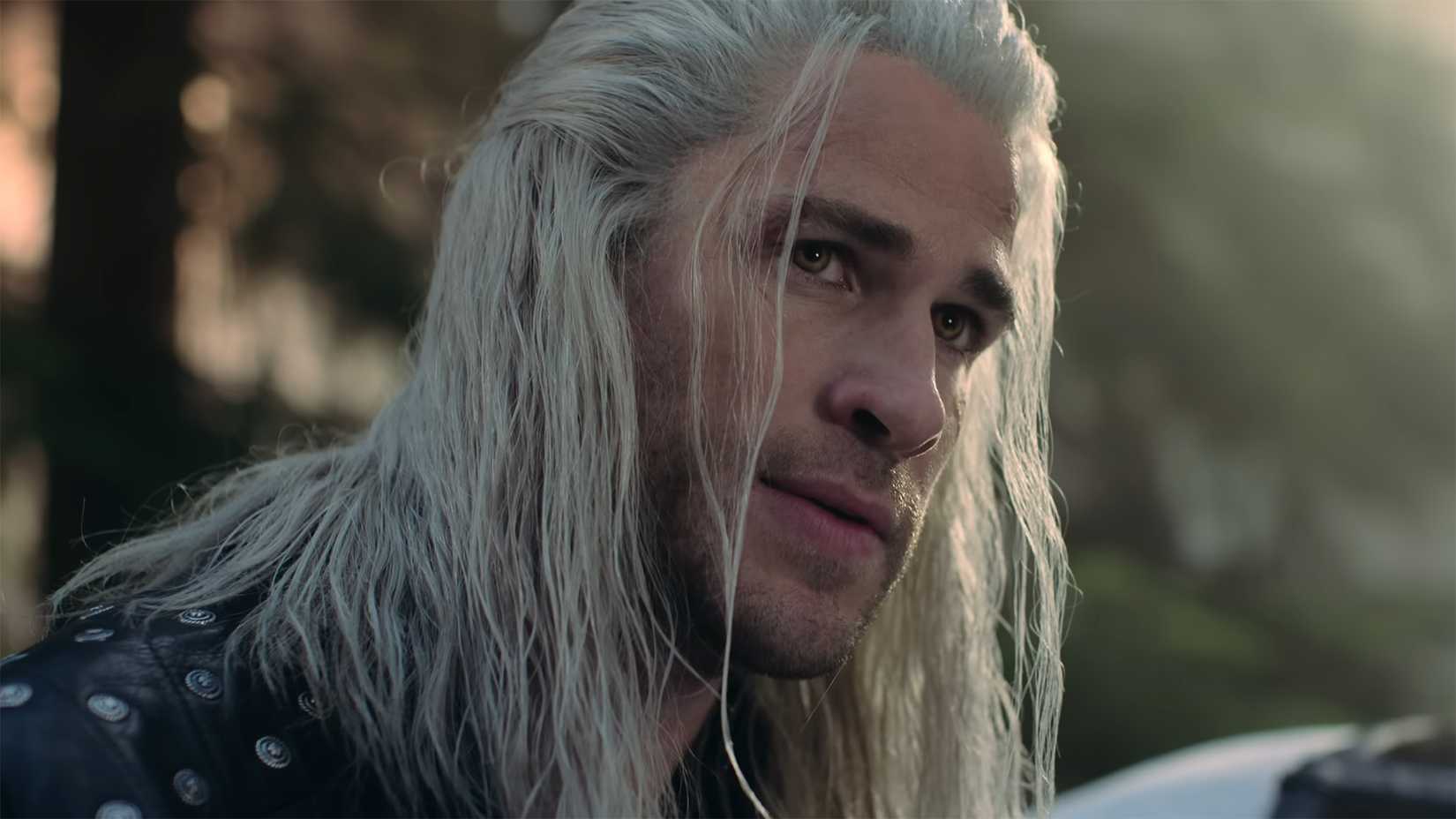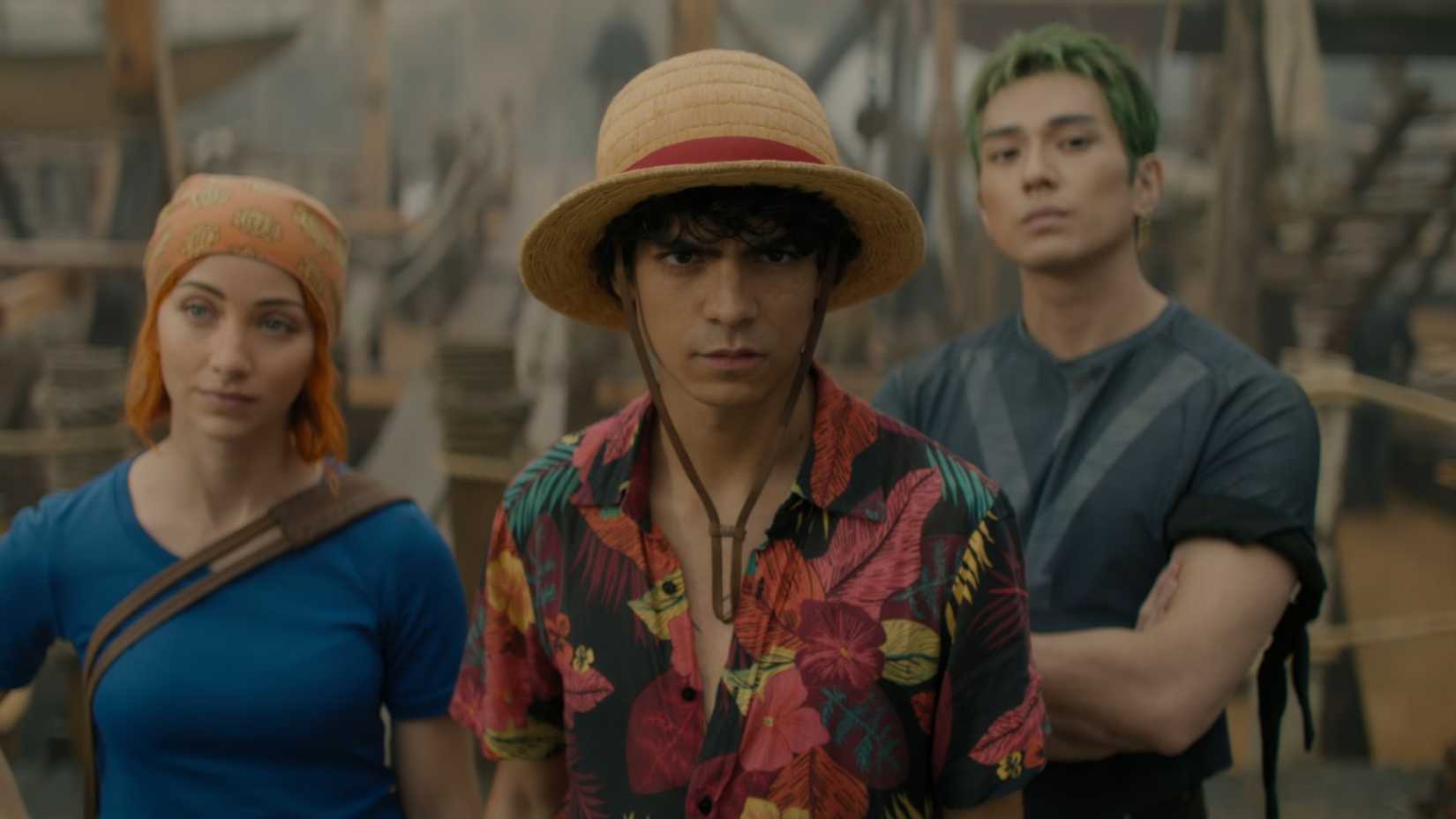Netflix’s live-action One Piece may have defied the odds and cultivated brand-new appeal for its anime franchise, but it faces significant challenges. With two and a half years between seasons 1 and 2, with season 3 coming likely around 2027, one problem will soon emerge. While Stranger Things narrowly avoided it, One Piece may face an aging problem soon.
As Netflix’s One Piece is set to release season 2 on March 10, 2026, the adventures of a 17-year-old Monkey D. Luffy will bring the Straw Hat pirates to the Grand Line. However, even if they can conceivably retain a teenage exuberance into subsequent seasons, the question then arises: how long will Netflix keep One Piece afloat before cancellation?
Netflix’s Live-Action One Piece Faces a Twist on Stranger Things’ Age Problem

It’s easy to joke about the Party of Stranger Things getting drastically older while saying, “Friends don’t lie,” the series has thankfully avoided this being too jarring an issue. While the actors portraying Will, Mike, Lucas, Dustin, and Max are at varying stages of their early-to-mid twenties, they’re not actually much older than their older teen counterparts at the start.
While Stranger Things reached its conclusion before any of its youngest cast were too noticeably old, One Piece faces the challenge of portraying characters whose ages are relatively static. This will be okay for the first few seasons, with some mild relief should they reach the time-skip. But even that is multiple years ahead, while the cast continues aging.
This shouldn’t surprise anyone, but even within five or six seasons to reach Marineford before the time-skip, actors like Taz Skylar will be in his mid-thirties portraying a 19-year-old.
Provided the series keeps a brisk pacing, this can conceivably work, but not likely for the whole manga’s run to be adapted. This shouldn’t surprise anyone, but even within five or six seasons to reach Marineford before the time-skip, actors like Taz Skylar will be into his mid-thirties portraying a 19-year-old. However, there’s a reasonable compromise to consider.
One Piece’s Characters Must Age Differently from the Manga

Allowing the cast’s mild aging over the years shouldn’t be a controversial choice. Netflix’s One Piece doesn’t have the advantage of the anime and manga franchise in keeping its characters trapped in a timeless bubble like Naruto’s infamous Fourth Great Ninja War, spanning two in-series days while released over multiple years. Iñaki Godoy can’t portray a teen forever.
This is especially the case with the production schedule, as the series is only getting into the Alabasta Arc in season 3. Reaching Marineford and the time-skip is still realistically years away, and, if the series miraculously carries past the time-skip, even with rushed pacing, the massively bulky Wano Arc is an intimidating prospect. It also raises an unfortunate question.
Will Netflix’s One Piece Be Sunk by the Same Problem as The Witcher?

This isn’t even necessarily due to anybody aging too much for the role, and is entirely hypothetical and dependent on One Piece going the distance. Any number of factors could affect a recasting choice, including actors ending their tenure to chase other roles, much like Cavill did. However, Godoy is clearly committed to many years ahead, according to Teen Vogue.
However, One Piece’s franchise isn’t immune to recasting for justifiable reasons. Kazuki Yao recently graduated from his role as Franky in the anime due to health reasons, and, while Mikaela Hoover is unlikely to leave her Chopper role anytime soon if ever for similar cases, it’d be understandable. This is before even considering commitments like live-action Franky, Brook, or Jinbe.
In adapting a series with a potentially much longer run, as its source material has 1165 chapters and counting, there’s one older, more classic issue with its Netflix adaptation.
For now, it doesn’t seem likely that One Piece will have the same issues plaguing it as The Witcher did. But in adapting a series with a potentially much longer run, as its source material has 1165 chapters and counting, there’s one older, more classic issue with its Netflix adaptation. One Piece is unlikely to avoid cancellation.
One Piece Faces an Uphill Battle in the Long Run

Netflix has cultivated an unfortunate reputation for premature cancellations, such as last year’s 16 shows that were axed. In a way, though, One Piece is oddly at home, as the manga has lasted 28 years and counting at Weekly Shonen Jump which is well-known for pruning underperforming manga to keep a curated crop going as long as possible.
One Piece obviously has the source material and wildly unique worldbuilding and stories to stand out in Netflix’s library, but whether it’ll have a shelf life similar to Ozark and Stranger Things is difficult to say. It’s easy to imagine a realistic goal like reaching Marineford and the time-skip, but even then, Netflix series rarely last beyond three seasons.
Nobody is under the illusion that One Piece would be completely adapted. While a more brisk adaptation in fewer seasons would result in far less frustrating periods like the Dressrosa Arc with its anime’s incessant shots of people running, it’s important to strike a balance. Oda’s story did so well because he built this intricate world carefully over decades.
The question then arises, whether One Piece will organically find a way to end, with fans knowing how much story there is to tell. The manga has fans absolutely frothing at the mouths to see just what Joyboy left behind at Laugh Tale, and it’s almost cruel to set that up in live-action only without a potential payoff.
Organic Ending or Not, Netflix’s One Piece Is Still a Major Win

Even with the various asterisks to its success, One Piece on Netflix is a ton of fun, and a great way to introduce newcomers to the franchise. It has an excellent line of merchandise to speak for this, with LEGO’s One Piece offerings being a hit with the fans, whether building its iconic scenes or collecting Buggy and Luffy’s Brickheadz.
One Piece has also been a consistently strong series weathering all manner of backlash, even the especially upsetting reactions to some of its casting. But with a hand-selected group of actors playing roles arguably perfectly suited to them, the series has yet to generate any actual controversy that killed other Netflix series like House of Cards.
But crucially, it’s a Netflix live-action series that has garnered a positive reception and an active fan following that adores the cast. One Piece is a win for Netflix. Now, it’s more a matter of whether the Straw Hats can steer the Going Merry, or indeed the Thousand Sunny, even amid more troubled waters in the future.





